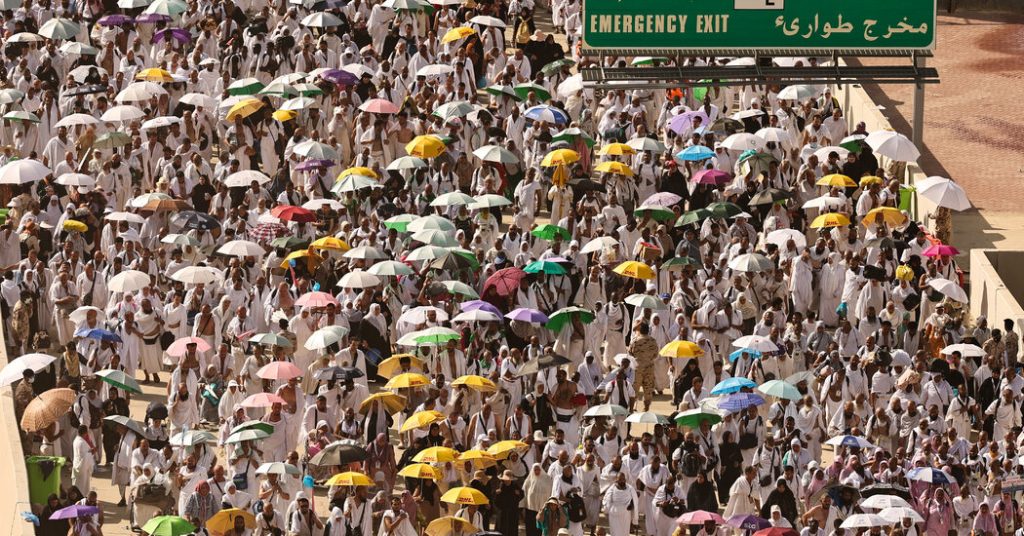More than 1,300 people died in Saudi Arabia this month while making the Islamic pilgrimage of hajj, with the majority of deaths involving pilgrims who did not have permits. These unregistered pilgrims, who often paid thousands of dollars to illicit tour operators, walked for miles in scorching heat, leading to deaths from heat stress and other causes. The Saudi government acknowledges the challenge posed by rising temperatures during the hajj season and the risks faced by those without permits.
The deaths this year have exposed an underworld of illicit tour operators and smugglers who profit from Muslims desperate to make the hajj journey. Despite efforts to prevent unregistered pilgrims from reaching holy sites in Mecca, an estimated 400,000 undocumented people attempted to perform the pilgrimage this year. Countries such as Tunisia, Jordan, and Egypt have taken action in response to the large number of deceased pilgrims, firing officials and launching investigations into illegal hajj routes.
The rising economic desperation in countries like Egypt and Jordan has driven up the number of unregistered pilgrims this year, as the cost of an official hajj package can exceed $5,000 or $10,000. Some individuals have resorted to paying agents in their home countries and brokers in Saudi Arabia to facilitate their journey. As a result, many unregistered pilgrims face inadequate housing, transportation, and services, increasing their risks during the pilgrimage.
The hajj, a deeply spiritual ritual for Muslims, can be physically challenging even for those with permits. The Saudi government deploys measures to mitigate the effects of extreme heat, including spraying pilgrims with water and providing shading at some sites. While some pilgrims with official permits describe a generally smooth experience, others complain of inadequate facilities, lack of assistance for heat-related illnesses, and the challenges faced by elderly or ailing individuals during the journey.
The hajj is a once-in-a-lifetime experience for many Muslims, and dying in Mecca is considered to confer great blessings. Despite the risks involved, some pilgrims, including elderly individuals like Isatu Wurie and Alieu Wurie from Maryland, saved for years to make the pilgrimage. The elderly couple faced challenges in Mecca, including delayed permits and transportation, but were still able to perform some rituals before their tragic deaths.
The Saudi government emphasizes its commitment to provide health services to all pilgrims, regardless of permit status, race, or nationality. However, the deaths of at least two Americans during this year’s hajj highlight the risks faced by undocumented pilgrims and the need for better government arrangements to ensure the safety of all participants. The tragic circumstances surrounding the deaths of many pilgrims this year underscore the dangers posed by illicit tour operators and the importance of addressing the underlying factors that drive individuals to undertake the hajj journey without permits.


